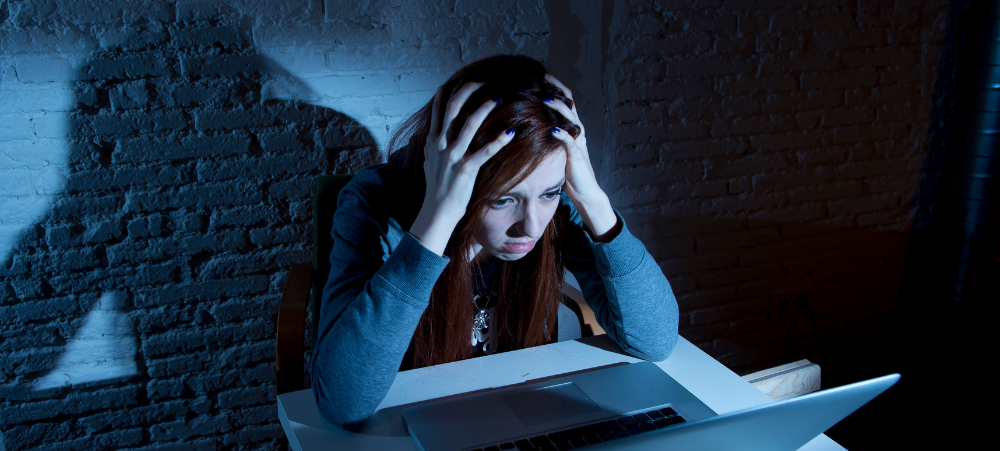By Andrew Wilson, CEO at LucidView
What does the job of a parent entail? In short, the aim is to raise well-balanced individuals that are independent free thinkers, capable of creating a life for themselves outside of the parental home. One of the most important tasks for us is undoubtedly to keep our children safe, protecting them from physical, mental and emotional harm and minimising their exposure to danger. However, there are some parents that think nothing of giving their children unrestricted Internet access because they haven’t yet realised the extent of the very real dangers that lurk on the web.
Those parents that do perceive risk might have limited means of controlling Internet usage. Parents have a non-negotiable obligation to ensure that the Internet access they’re providing for their children – be it for entertainment, education, or communication purposes – is clean and safe. To do this, it’s important to discuss the dangers of the Internet with children and teach them how to protect themselves online and then to take matters into your own hands by blocking access to unsafe, undesirable content in your home.
What dangers do children (and teenagers) face online?
Kaspersky Lab and market research and consultancy Kids & Youth conducted an online survey of 3,780 families with children aged 8 – 16 (one parent and one child per family) in seven countries and the results were sobering. The Growing Up Online – Connected Kids survey showed 37% of children have come across unwanted content or incidents on the web while 47% of constantly-connected children have encountered online threats. Here’s the kicker: two-thirds of the children responded that they’re afraid of online threats just as much as real life ones, or even more so.
The dangers of exposure to explicit content should not be underestimated. Age restrictions on films are there for a reason, and the same rules should apply for minors when using the Internet. Exposure to pornography, sites that promote violence or cruelty to people or animals is not what builds well-rounded, free-thinking individuals. Rather the opposite in fact and the harm from such exposure is accumulative and occurs over long periods of time, causing untold emotional and behavioural damage. Parents should, therefore, block all access to such content that they deem unsafe. Parental controls have traditionally been software-based, complicated to set up and expensive. Aside from enabling Safe Search features and monitoring browser history, there was no easy way for parents to enforce their rules regarding internet usage. Until now.
Is there a solution?
A particular passion project that stemmed from a realisation that there was a pressing need to give our children safe, clean Internet access, the LucidView Enforcer is a device that does exactly that. By default, it blocks the three major types of unsafe content: pornography, gambling, and piracy (such as the illegal sharing and downloading of copyrighted songs and movies) and can easily be configured to block other sites or content types that parents themselves deem to be unsafe.
In addition, products on the market today should also have reporting functionality, keeping a log of every connection that passes through the device. This is necessary to deliver monthly reporting that gives parents insight into what sites kids on the home network are frequenting, and also how much time they are spending on certain online activities. Organisations should be making it easier for parents to enforce their rules regarding screen time and Internet access to give their children the time they need to do things like play outside, read a book and spend time with their families – all the childhood activities that are so vital for healthy mental and emotional development.
Failure to manage Internet usage is irresponsible parenting
When faced with the fact that unrestricted Internet access means that parents are opening their children up to (possibly accidental) exposure to explicit or age-inappropriate content, cyber-bullying, gambling, or websites that encourage harmful or illegal practices, like eating disorders, crime and even terrorism, the reality is that the Internet is a much scarier place for children than we as parents might think. Yes, we want our children to have access to all the knowledge in the world, but we need to make sure that they’re not distracted by harmful content in their quest to learn and entertain themselves. This means taking complete control over Internet usage in our homes (and even questioning what protective measures are in place at school). Anything less is simply irresponsible parenting, especially considering how easy and inexpensive it has become to do so.
We understand that there are many aspects that encompass a Mother, Father or Child and strive toward providing resources and services that accommodates this.
Our content is aimed to inform and educate families on issues starting from pregnancy through to the challenges of the teen-age years.
- Say Hello to the Ultimate Holiday Brunch Bite - December 17, 2025
- Tiny Toons Looniversity Returns: Meet the Voice Behind Plucky and Hamton! - December 12, 2025
- From Pain to Possibility: Panado®’s New Marketing Campaign, Highlights The Joy Of Pain Relief - December 10, 2025





